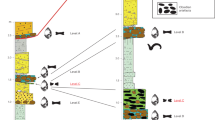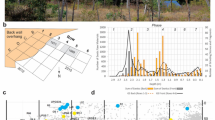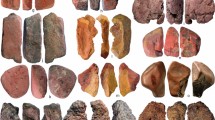Abstract
PROF. BOULE'S wash-mills are now rivalling the conjuror's hat—from which all sorts of strange things can be taken by an experienced hand. Years ago they produced what were declared to be typical Harrisonian eoliths; now they have given us “a collection of characteristic types, rostro-carinates, etc”. (NATURE, April 24, 1926, p. 602), such as are found beneath the Red Crag of Suffolk, while, already, a crushing machine has “produced flakes, some of which... might have been taken for scrapers of an Upper Palæolithic or even Neolithic culture”. From this it would appear that, with a little less stringent selection on Prof. Boule's and Mr. Etienne Patte's part, these wash-mills and crushing machines of France will soon be shown to be turning out ‘typical’ flint implements of all prehistoric periods, and the much-discussed Stone Age thus be made to disappear into the limbo of forgotten things.
This is a preview of subscription content, access via your institution
Access options
Subscribe to this journal
Receive 51 print issues and online access
$199.00 per year
only $3.90 per issue
Buy this article
- Purchase on Springer Link
- Instant access to full article PDF
Prices may be subject to local taxes which are calculated during checkout
Similar content being viewed by others
Author information
Authors and Affiliations
Rights and permissions
About this article
Cite this article
MOIR, J. An ‘Eolith’ Factory. Nature 117, 723–724 (1926). https://doi.org/10.1038/117723a0
Issue Date:
DOI: https://doi.org/10.1038/117723a0
Comments
By submitting a comment you agree to abide by our Terms and Community Guidelines. If you find something abusive or that does not comply with our terms or guidelines please flag it as inappropriate.



